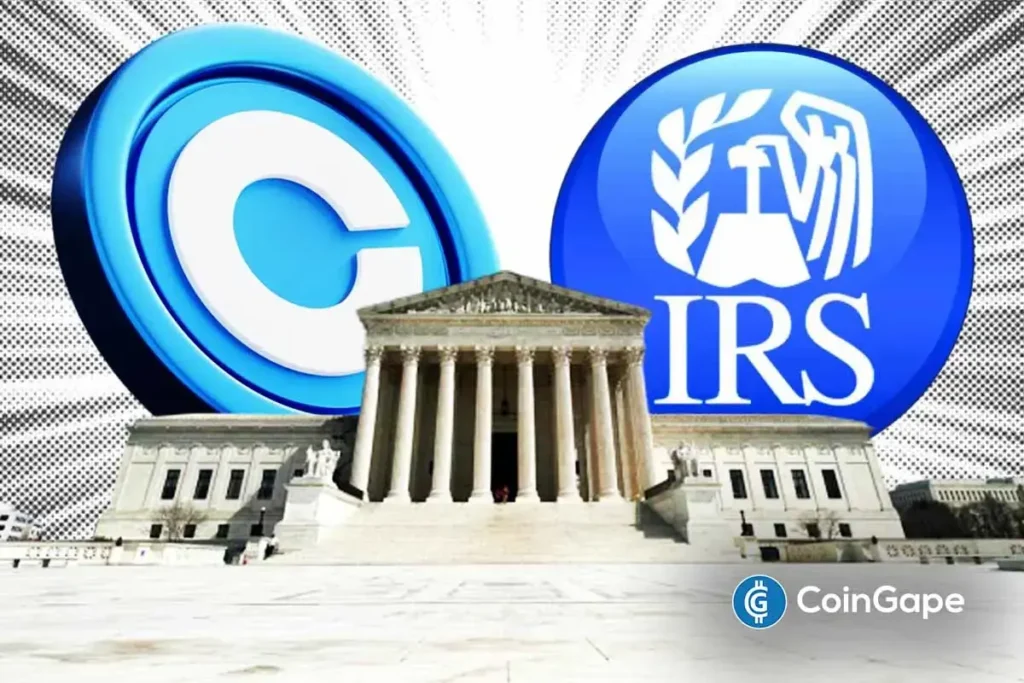Landmark US Supreme Court Ruling Impacts Cryptocurrency Privacy
The recent ruling by the US Supreme Court has delivered a significant blow to the privacy rights of cryptocurrency users. In a case involving Coinbase, the Supreme Court sided with the Internal Revenue Service (IRS), permitting the agency to access the transaction data of over 14,000 Coinbase users. This decision could reshape the regulatory landscape for the burgeoning cryptocurrency industry and raises essential questions about individual privacy in the digital age.
Supreme Court Upholds IRS Authority
According to a report from Bloomberg, the Supreme Court declined to question the IRS’s authority to issue a summons requiring Coinbase to provide user transaction details. This ruling reaffirms the IRS’s power to scrutinize the financial activities of cryptocurrency users as part of its ongoing investigation into underreporting capital gains on digital assets. This legal precedent is critical, as it suggests that crypto platforms must comply with government inquiries just like traditional financial institutions.
Historical Context of the Ruling
The Supreme Court’s decision also revisits a 1976 ruling that established the precedent that users do not possess privacy rights over records held by third parties, such as banks. This interpretation, which narrows the scope of the Fourth Amendment’s protections against unreasonable searches and seizures, now extends to cryptocurrency platforms. James Harper, a Coinbase user whose appeal was denied, argued that the ruling sets a dangerous precedent that could undermine privacy for millions of Americans who utilize modern financial services.
Implications for Cryptocurrency Users
The ruling carries significant implications for privacy in the cryptocurrency sector. Many users may have previously felt secure in their anonymity, believing that the decentralized nature of crypto would protect their financial data. However, this decision illuminates that conventional privacy protections in traditional banking may not necessarily apply to digital assets. Users must now be mindful of the potential for their sensitive financial information to be disclosed to government authorities.
Coinbase’s Stance and its Fight for User Data
Interestingly, Coinbase’s leadership echoed Harper’s concerns by jointly requesting the Supreme Court to take on the case. The exchange had previously made efforts to combat the IRS summons before reluctantly conceding to hand over user data to avoid a contempt of court ruling. This indicates that even leading companies within the crypto space are navigating a complex legal landscape, grappling with balancing regulatory compliance and user privacy rights.
The Future of Privacy in Cryptocurrency
As the cryptocurrency sector continues to mature, the conversation surrounding privacy and regulatory compliance will undoubtedly escalate. The Supreme Court’s ruling may serve to catalyze a broader dialogue about how privacy expectations are managed within the context of digital assets. Industry leaders may need to reassess their operational frameworks to safeguard user data while still adhering to governmental regulations, which could lead to future innovations in privacy-centric blockchain technologies.
Conclusion
The US Supreme Court’s ruling in favor of the IRS against Coinbase marks a pivotal moment in the ongoing evolution of cryptocurrency regulation. It underscores the growing intersection of financial technology and regulatory oversight, raising vital questions about privacy, compliance, and user rights. As the landscape continues to evolve, both users and businesses in the cryptocurrency sector must remain vigilant in navigating the complex interplay between innovation and regulation. The future of cryptocurrency may hinge not only on technological advancements but also on the legal frameworks that govern users’ data rights and privacy protections.
















